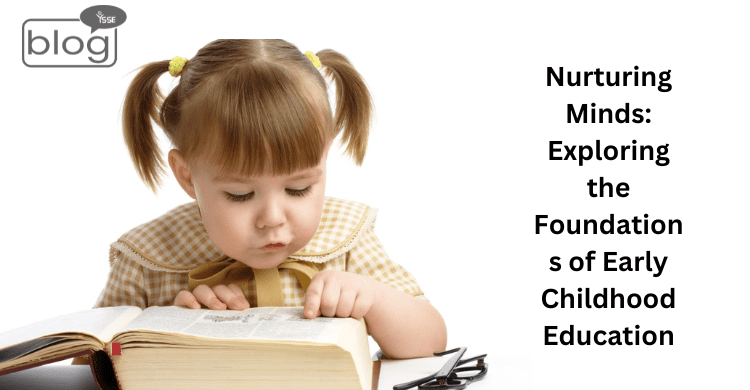A child’s social, emotional, and cognitive improvement can not get off the ground without exceptional early adolescence education (ECE). In doing so, it prepares the groundwork for further study and fulfillment. The years immediately after birth until about the age of 8 are formative for the growing mind. What happens to kids throughout adolescence has a profound effect on their improvement and success in their destiny due to the fact their brains are extra malleable and open to new ideas. Early childhood schooling (ECE) provides a safe area for kids to research and grow, imparting them with the gear they want to reach college and in life.
It takes a more all-encompassing method to a toddler’s improvement, focusing on their highbrow, physical, social, emotional, and ethical growth. Not only can children gather instructional statistics through play, but they also develop vital life features like empathy, resilience, and creativity through their interactions with adults and peers.
The use of play as a medium for learning is most of the maximum promising strategies to early formative years of education. Children study critical cognitive skills, discover ideas, and make sense of their environment through play. In addition to encouraging social touch and teamwork, play-based getting-to-know cultivates inquisitiveness, creativity, and problem-solving capabilities. Play, whether it’s with blocks, stories, or exploring the outdoors, prepares kids for a lifetime of learning in the faculty and past.
Successful early-life educators know the value of responsive coaching, which includes adapting classes to every student’s precise interests and necessities. Teachers can better scaffold college students’ studying, set reasonable demanding situations, and deliver important help when they actively observe and interact with their college students. In a responsive classroom, college students are reputable, supported, and stimulated to observe due to the positive ecosystem that is fostered.
The importance of parental involvement in their toddler’s early education can’t be overstated. Teachers, mothers, and fathers operating together improve students’ instructional reviews and foster their boom. The domestic and college environments are both strengthened when the mother and father actively take part in their infant’s schooling via methods that include open verbal exchange, determine-trainer conferences, and circle of relatives engagement activities.
Early life education welcomes and celebrates cultural range and significance via acknowledging and valuing every infant’s wonderful records, traditions, and identity. By incorporating culturally sensitive methods into the school room, educators may additionally help all students experience welcome and value. Educators might also better equip their college students for success in a varied and multicultural society by such different factors of view in lesson plans and schoolroom activities.
Being up-to-date with the most recent research, trends, and fine practices inside the place is important for effective early childhood educators, who are dedicated to persevering with professional development. Teachers can also enhance their methods of preparation, get a higher hold close of how kids develop and expand, and hone the capabilities to address the changing wishes of their college students through expert development programs.
Evaluation and Assessment:
When it involves preschool packages, evaluations do not prevent with well-known tests of academic progress. It consists of a multi-faceted approach for gauging youngsters’ development and development. To help instructors customize classes and aid each pupil’s mastering direction, developmental monitors, observational assessments, and portfolios offer critical information approximately college students’ hobbies, abilities, and areas for development.
In order to provide surroundings where children can also flourish, educators ought to adhere to principles like cultural relevance, play-based mastering, responsive coaching, and holistic development. When early adolescent educators work collectively with households, keep growing professionally, and use meaningful evaluation approaches, they help each child attain his or her full potential and start them on the street to fulfillment and happiness.
To read more blogs like this, click here
Writer :
Afsana Khanom Monika
Intern
Content Writing Department
YSSE

